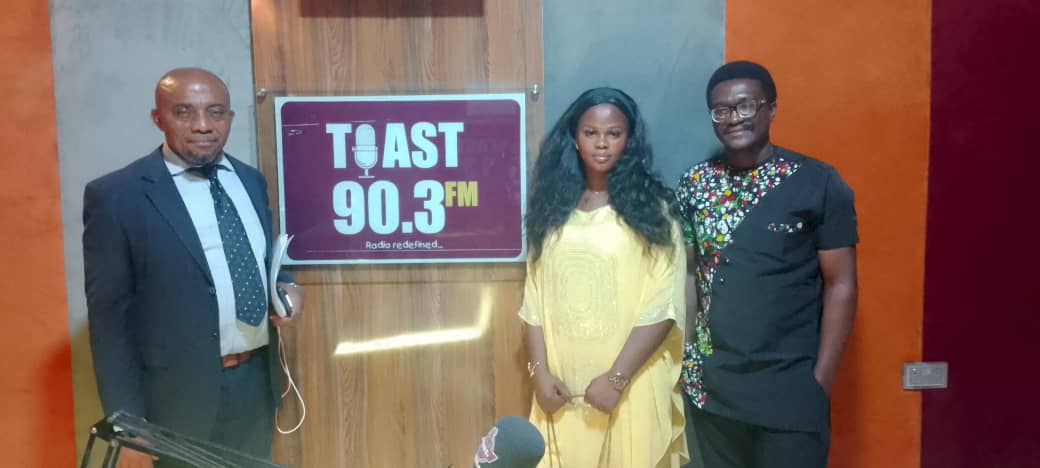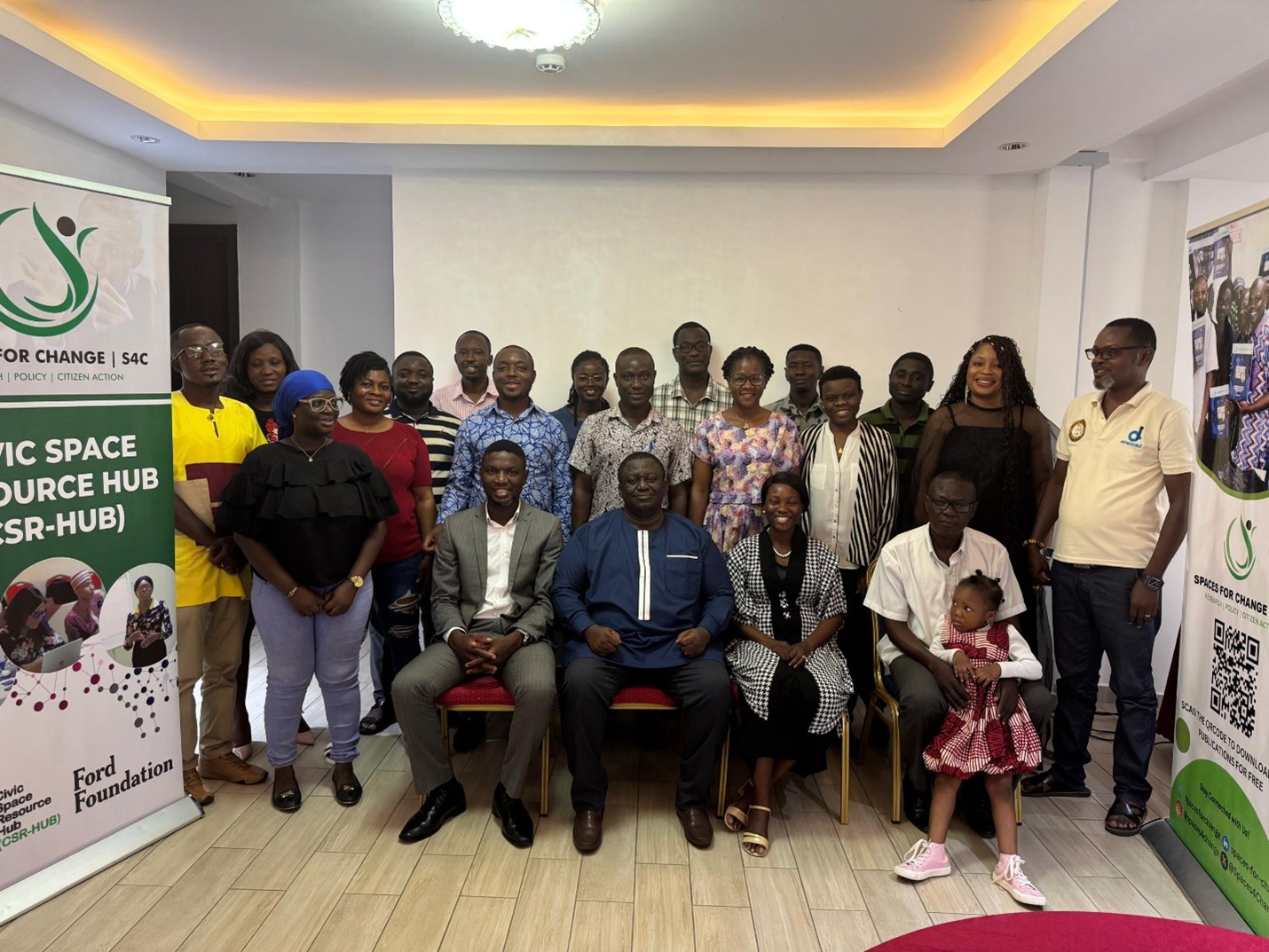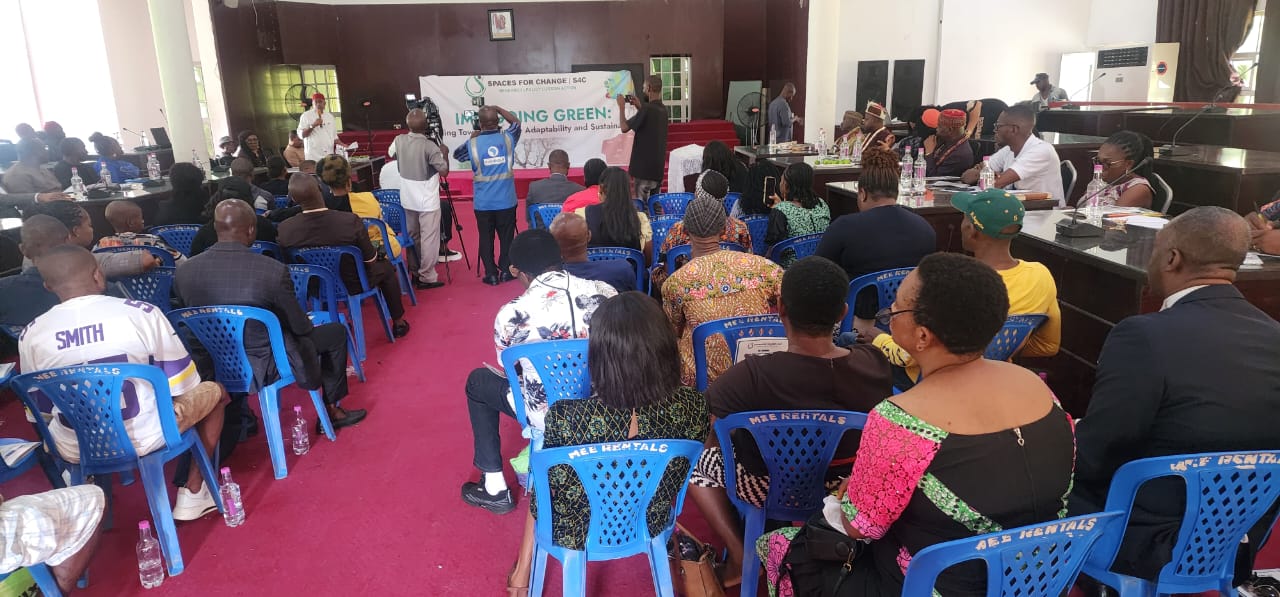Spaces for Change|S4C and the Imo State Ministry of Environment and Sanitation have kicked off the flagship radio program in Imo State, tagged, “Climate Justice Hour”. Aired live on Toast 90.3 FM Owerri every Tuesday with support from the Institute of Development Studies (IDS) UK and the Ford Foundation, the radio show features expert and local knowledge to demystify climate change, spotlight policy and governance gaps and explore adaptation strategies that can work in Imo State. In addition, the program further features voices of under-represented groups and communities, including women and persons living with disabilities, in the climate change discourse.
Each episode bridged the gap between global climate developments and everyday life in Imo State showing how international climate trends echo through local communities in deeply personal and practical ways. As the program debuted on radio, it resonated with a wide audience across the state already devastated from the impacts of climate change. From city-dwellers to rural farmers to academia to the civil society and a host of governmental actors, the phone-in segment of the show was always busy with callers, sharing their experiences, asking questions and demanding answers to a wide range of environmental concerns affecting them.
Experts on the radio program shed light on the fundamentals of climate change, including persistent shifts in global and regional climate patterns driven by the buildup of greenhouse gases like carbon dioxide and methane from human activities such as fossil fuel use, deforestation, and intensive agriculture. These gases trap heat, raising the earth’s temperature and unleashing devastating effects like stronger storms, rising seas, erratic rainfall, droughts, floods, and mounting pressure on ecosystems and communities.
Over four weeks, lawmakers, environmentalists, farmers, and community leaders broke down these complex issues, connecting the science to everyday experiences in Imo State, addressing questions and offering practical solutions. The series highlighted how local challenges, like erratic rainfall and heatwaves, are part of the broader climate crisis and underscored the need for interventions such as halting indiscriminate tree felling, regulating land use, and preserving green spaces. It also exposed gaps between policy and practice, noting that while agencies, like the Owerri Capital Development Authority, require green buffers in urban projects, enforcement remains weak.
The radio series also delved into the intersection of law, policy and action, focusing on Nigeria’s Climate Change Act and ongoing efforts to draft a state-level climate policy in Imo State. Legal experts and policy analysts emphasized that legal frameworks, while essential, are insufficient without effective implementation, cross-sector collaboration, and grassroots involvement, reinforcing the principle that communities must shape the policies affecting their lives. Spotlighting the Imo State Technical Committee on Climate Change, a multi-stakeholder body coordinating climate initiatives in Imo State, the program underscored the importance of inclusivity and civic participation in environmental governance.
One of the key highlights of the programme was the practical discussions from farmers and rural dwellers on the ‘heart’ of rural life, which is agriculture and how it is being upended by the climate crisis. They shared how extreme weather, flooding, and seasonal unpredictability decimate productivity and food security, particularly for subsistence farmers. A testimony from a woman farmer in Ohaji/Egbema revealed how oil extraction has damaged soil fertility, reducing yields of staple crops like cassava and palm fruit. Yet the conversation remained solutions-oriented, advocating for climate-resilient agriculture through crop rotation, soil conservation, and water-saving techniques, while reiterating calls for stronger policy support, access to tools, and secure land rights.
Respondents and reactions to experts’ analysis during the radio programme also unpacked how droughts and flash floods, worsened by hardened soils, devastate homes and livelihoods, stressing the need for accurate climate forecasts, fair markets, and stricter oversight of polluting industries. The series concluded by prioritizing gender impacts. Although women bear the brunt of climate impacts, they remain underrepresented in energy and climate decision-making. Along this line, experts called for structural reforms to guarantee women’s meaningful participation, sharing inspiring examples of women-led initiatives in flood relief, land rights advocacy, and community resilience efforts.
The Climate Justice Hour demonstrates the interconnectedness between climate change, agriculture, gender equity, governance, and community action. The series underscores that effective climate action demands more than laws on paper; it requires active enforcement, community ownership, sustainable agricultural practices, pollution control, and the inclusion of marginalized voices. Listeners were encouraged to plant trees, join local environmental watchdog groups, embrace climate-smart agriculture, and support women’s participation in community governance. Through continued community engagement and sustained information campaigns, Imo State is building a future where climate justice becomes a shared responsibility and a collective achievement.





















